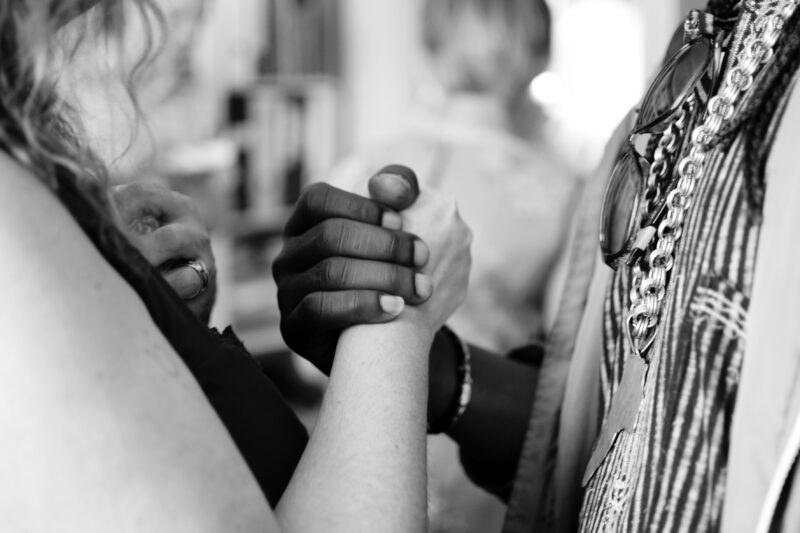The two-year long Concerted Action of Justice and Peace Europe is inspired by the remarkable foresight of Pope Francis’ encyclical letter Fratelli Tutti. In the next two years the thirty member commissions of Justice and Peace Europe will continue their long-term work on social justice, drawing particular attention to social fears that are ignored, but also contribute to deconstruct fear and anxiety which threaten to manipulate European citizens. Inspired by Fratelli Tutti they will furthermore develop events and venues to promote global multilateralism. Therefore they will cooperate with Justice and Peace Commissions all over the world.
Mutual assistance between countries proves enriching for each. A country that moves forward while remaining solidly grounded in its original cultural substratum is a treasure for the whole of humanity. We need to develop the awareness that nowadays we are either all saved together or no one is saved. Poverty, decadence and suffering in one part of the earth are a silent breeding ground for problems that will end up affecting the entire planet… Never has it been more evident than in our own day, when the world is interconnected by globalization. We need to attain a global juridical, political and economic order which can increase and give direction to international cooperation for the development of all peoples in solidarity.
(FT 137.138)
1. Multiple global crises and an ocean of fears
The Climate crisis because of man-made global warming and its extreme weather events; the COVID-19 pandemic with its devastating impact on individual health and social life; Russia’s brutal war of aggression against Ukraine and the resulting global energy and food crisis; migration and the insufficient integration of migrants in their host countries – these great crises inspire and increase our fear, and anger, especially amongst young people. As an emotion, fear warns us of danger and reminds us to be cautious. Yet, it has the potential to divide and to erase not only interpersonal trust but also trust in national, regional and international institutions and their ability to reach fair compromises. In this context of an increasingly fragmented world, the Catholic network Justice and Peace Europe, calls for stronger political support and better financial resources for these pivotal multilateral institutions, so that they can act decisively for human security and regain people’s trust.
2. Truth and Human Dignity resources to deal with fears
Dealing with fears requires discernment. It is necessary to distinguish legitimate concerns from manipulations. Too often the fears of the weakest are forgotten whereas the Catholic Social Teaching insists that they should come first in our crisis management. In line with statements
from his predecessors, Pope Francis has offered in his encyclical letter Fratelli Tutti benchmarks in dealing with fears and in opening the pathway towards a future in fraternity: “Every human being has the right to live in dignity and to develop in a holistic manner; this fundamental right cannot be denied by any country. People have this right even if they are unproductive, born with limitations or have developed them. This does not diminish their great dignity as human persons, a dignity based not on circumstances but on the intrinsic value of their being. Unless this basic principle is upheld, there will be no future either for fraternity or for the survival of humanity” (FT 107) Grasping that caring is key to survival and helps to avoid the trap of retreating into bubbles of false safety, including inward-looking informational circles.
3. Stronger international cooperation – Reinventing communication – Strengthening community
Justice and Peace Europe is deeply concerned by the increasingly lawlessness of an international arena in which stronger states oppress weaker ones, human rights are violated with impunity, and the ecological foundations of human life are destroyed. We strongly denounce this and demand the return of the rule of law and the strengthening of multilateral cooperation. “Preference should be given to multilateral agreements between states, because, more than bilateral agreements, they guarantee the promotion of a truly universal common good and the protection of weaker states” (FT 174). To achieve this, reforms of the existing international organisations are necessary.
No reform can take place without authentic dialogue, focused on searching for truth and the common good together. This requires not only that ‘media literacy’ is improved in all age groups, but first that human dignity is recognised and respected as fundamental.
Another prerequisite for constructive dialogue and for peaceful, fear-free coexistence is to come to terms with one’s past and to admit mistakes. Including the marginalized and vulnerable is essential for constructive communication. For they may help us to see from a new angle, to develop a positive view in difficult contexts. To face our fears and to be resilient, we must rely on community. “No one can face life in isolation… We need a community that supports and helps us, in which we can help one another to keep looking ahead.” (FT 8).
4. Action Plan for the Justice and Peace Concerted Action 2023
In 2023, the European Conference of Justice and Peace Commissions will therefore continue its long-term work on international social justice and much needed institutional reforms. It will draw particular attention to social fears that are ignored, but also deconstruct fears and anxieties which can be instrumentalized to manipulate European citizens. Member commissions will decide and propose events and venues where honest and truthful exchanges about fears and their consequences can be held, at national, European and international levels.
For more detailed information about the theme of this year’s concerted action please find the comprehensive background note here.



